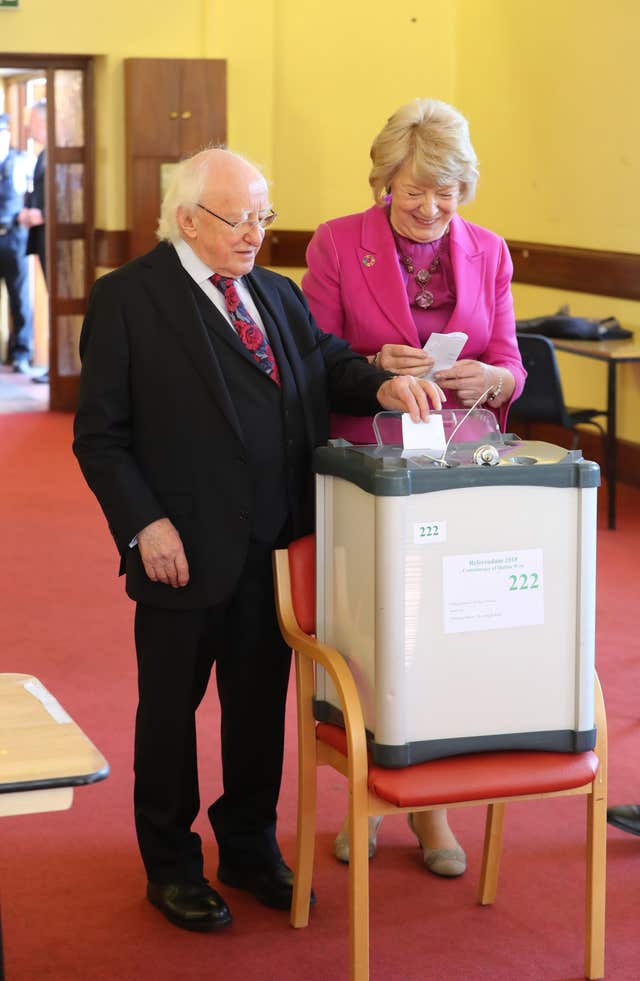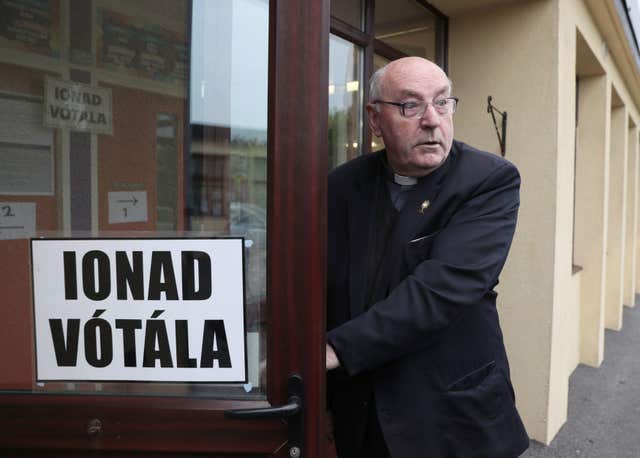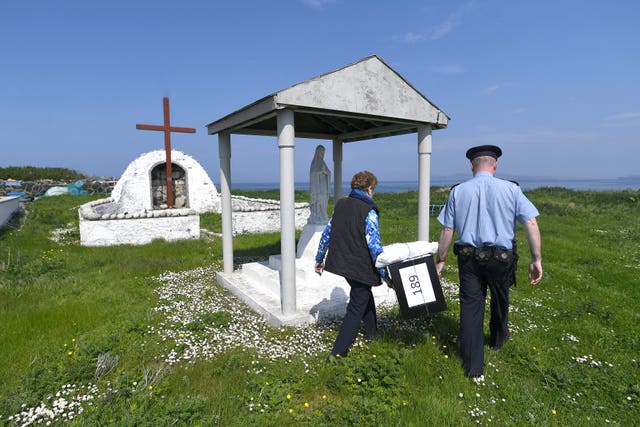Voting is under way in Ireland as citizens decide whether to liberalise one of Europe’s strictest abortion regimes.
Polls for the historic referendum opened across the country at 7am, with voters opting to either retain or repeal the Eighth Amendment of the state’s constitution, which prohibits terminations unless a mother’s life is in danger.
President Michael D Higgins and his wife Sabina cast their votes in Dublin at 9.30am.
A total of 3.3 million citizens are registered to vote, with 6,500 polling stations open across the country.

The Catholic Church is among influential voices arguing that the life of the unborn should be sacrosanct, but the retain campaign faces a major challenge from a Yes camp which has portrayed itself as modernising and in step with international opinion.
If the public votes Yes, the Irish Government intends to legislate by the end of the year to make it relatively easy for a woman to obtain the procedure in early pregnancy.

The debate during eight weeks of campaigning has been divisive, with the leaders of all the main political parties, including Taoiseach Leo Varadkar, backing change.
They argued that a Yes vote represented the compassionate choice for thousands of Irish women forced to travel to England for the procedure.
Opposing them was a vocal No camp, including the bishops, which insisted the life of the child is sacrosanct and interference in that right is immoral.

Opinion polls have been tight, with most showing the Yes side in the lead.
The indication is that rural voters are more likely to say No than their urban counterparts, while a significant number of “don’t knows” have cast a degree of uncertainty over the outcome.

The Eighth Amendment is a clause in the constitution which was written after a previous referendum on the issue in 1983 recognised the right to life of the unborn child.
It protects the equal right to life of the mother and the unborn and effectively prohibits abortion in most cases.
In 1992, women were officially given the right to travel abroad, mostly to the UK, to obtain terminations. Pro-repeal campaigners said almost 170,000 have done so.
The liberalisation campaign gathered momentum after an Indian dentist, Savita Halappanavar, died in hospital in Galway aged 31 when she was refused an abortion during a miscarriage.
Myself & Luke doing the business this morning in Kilternan (yes we’re over 50m from entrance) #8thRef #VotedYes #men4yes pic.twitter.com/SXOQsR7c8N
— Sen. Neale Richmond (@nealerichmond) May 25, 2018
Her husband, Praveen Halappanavar, said she repeatedly asked for a termination but was refused because there was a foetal heartbeat.
In 2013, legislation was amended to allow terminations under certain tightly restricted circumstances – the Protection of Life During Pregnancy Act.
When doctors felt a woman’s life was at risk due to complications from the pregnancy, or from suicide, they were permitted to carry out an abortion.
Under pressure from the UN about alleged degrading treatment of women who travelled to England for terminations, the Irish Government began exploring the possibility of further reform, culminating in the calling of this referendum and the promise to legislate.






